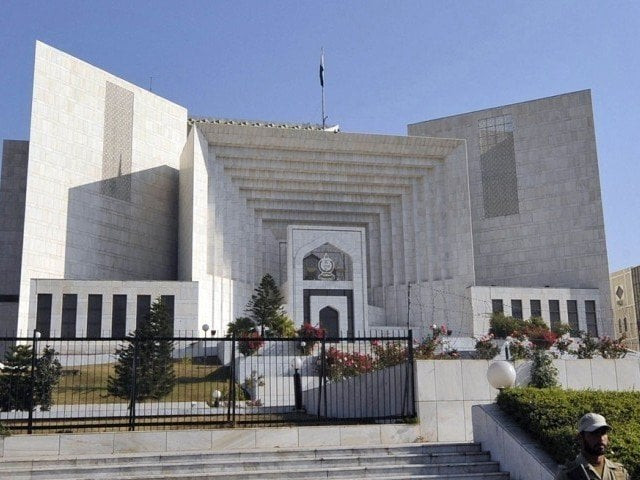Housing schemes: SC asks govt to allocate 10% quota for the poor
Directs government to formulate policy applicable to all public and private schemes.

Directs government to formulate policy applicable to all public and private schemes. PHOTO: AFP
The apex court has ordered the federal government to formulate a policy to allocate at least 10 per cent of every public or private housing scheme for low-income housing.
A two-member Supreme Court bench, comprising Justice Ejaz Afzal and Justice Qazi Faez Isa, took up the petition on Wednesday.
Housing schemes: Farmers demand exit plan before eviction
The issue of slum demolition has been in the court since August last year, when Awami Workers Party Chairman Abid Hassan Minto, who is considered a constitutional law expert, and others moved a petition against the CDA after it demolished a slum in Sector I-11 on July 30.
The petitioners also asserted that the state is bound to provide shelters to the evicted people.
The top court also ordered the Capital Development Authority (CDA) to submit a detailed report highlighting places such as greenbelts, public passes and places meant for other utilities encroached by homeless people in the next hearing.
“At least 10 percent part [should] be used for the construction of housing or shelter for those who are without it and [cannot] even dream about construction, even if they save more than half of what they earn,” the order stated.
Houses for sale: ‘Fazaia scheme is the manifestation of PAF’s precision’
The top court also extended its interim order restraining the CDA from taking adverse action against slum residents.
During the hearing, Additional Attorney General Amir Rehman informed the bench that in pursuance of the court’s order, the competent authority would constitute a team of experts from the CDA, the federal housing ministry, and provincial housing ministries to determine a policy for addressing the issue of katchi abadis.
Minto said in court that there are no reservations on the seriousness of government in making a policy, but he requested the bench to set a timeframe and monitoring mechanism for the execution of the work.
The AAG further argued that 10 of the 42 slums in Islamabad were recognised by the CDA in December 1995 and that it was also decided that land owning agencies would enforce existing anti-encroachment laws to ensure that more state land does not fall under adverse occupation which would result in grave and systemic violations of the Islamabad Master Plan and its sectoral layout.
Housing for employees: Six firms show interest in developing schemes
The bench asked about the criteria for recognition of a slum, the origin of the term “recognition”, and whether or not this creates differences among recognised and unrecognised slums.
Justice Isa expressed displeasure while observing that every person needs basic facilities such as shelter, while also observing that no schemes for homeless people have been pushed through. Justice Isa further observed that state is constitutionally bound to provide shelter to the citizens.
The bench observed that before giving a timeframe for implementation of a policy that the government would formulate, the court would like to hear what input has been taken thus far from the government in formulating the policy. The hearing was later adjourned for two weeks.
Published in The Express Tribune, January 14th, 2016.



















COMMENTS
Comments are moderated and generally will be posted if they are on-topic and not abusive.
For more information, please see our Comments FAQ